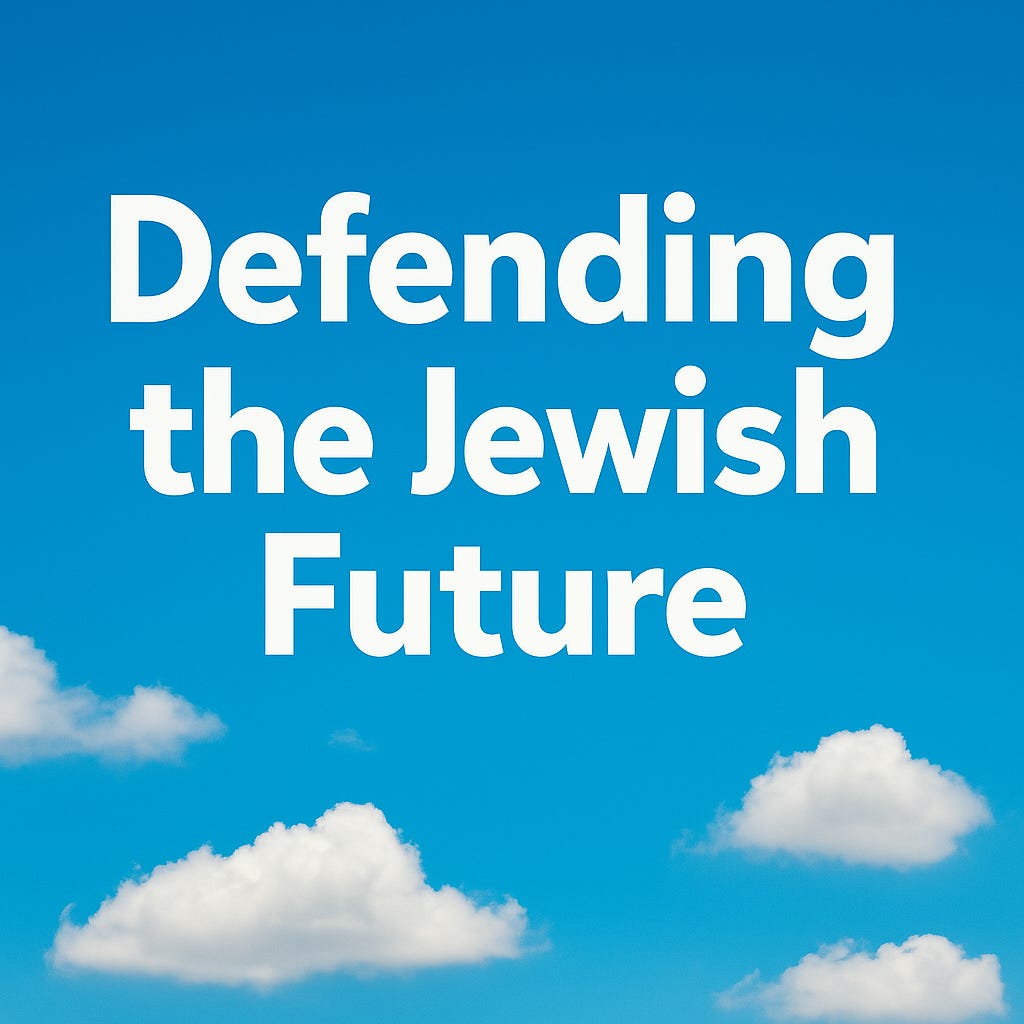Fear Is Not a Strategy: Why This Letter Does Not Make Us Safer
In moments of fear, our community often looks inward. But history teaches us that safety comes from reaching out.
A letter signed by more than 1000 rabbis and cantors is circulating, targeting New York City mayoral candidate Zohran Mamdani. It’s been met with enthusiasm by some and strong disagreement by others.
I understand the pain behind it. I understand the fear—it’s real, it’s rooted in our history, and it matters. But leading with fear—letting it dictate our politics and our relationships—doesn’t make us safer. It isolates us from communities doing similar work and makes it harder to recognize and fight threats when they arise.
We’re watching a shift in parts of the Jewish community toward reactionary fear, mirroring the same politics of division we reject elsewhere.
At a time when many Jews are building coalitions across difference—working alongside others who are also fighting for dignity and safety—this letter takes us in the opposite direction.
The letter claims to defend “the Jewish future,” but it draws narrow boundaries around solidarity at a moment when we need to build broad coalitions. Our safety will not come from isolation; it has always come from partnership.
Antisemitism is real. It is dangerous. And it is essential to name it and fight it wherever it appears. But this letter invokes Jewish safety to score political points—and in doing so, it divides the Jewish community and alienates our natural allies. That doesn’t protect us; it isolates us. It makes it harder to build the coalitions we need to confront antisemitism.
Fighting antisemitism requires partnership, accountability, and courage. It means having hard conversations and working with people who stand firmly with us against hate, even when we don’t agree on everything.
Jews are safer when we build coalitions across difference. Think about the Civil Rights Movement that so many in our community reference with pride. Those Jews understood that our safety was bound up with others’—not achieved through isolation. Jewish safety comes from building strong, honest relationships with other communities who are also struggling for dignity and belonging. Our futures are connected. Our liberation is bound together.
Real courage right now means rejecting the language of fear and embracing the harder work of bridge-building. If we truly want to defend the Jewish future, we must do it alongside others who are fighting for theirs.
And one more thing: this is a New York City mayoral race. Many of the rabbis and cantors who signed this letter don’t even live in New York City—or New York State. Meanwhile, many Jews in New York support Mamdani for mayor. They’ve been campaigning for him, listening to him, and doing the very coalition-building this letter dismisses. They see his vision for affordable housing, workers’ rights, and a more just city as deeply aligned with Jewish values.
Maybe that’s the Jewish future we should all support—one grounded in justice, solidarity, and belonging. New Yorkers should decide what’s best for New York.
Fear may keep us vigilant, but only courage—rooted in relationship—will keep us safe.
What do you think? I’d love to hear from you in the comments.
On a personal note, I’m deeply honored to share that I’ve been named to Out Magazine’s 2025 Out100 List alongside so many brilliant and inspiring individuals who are shaping our world and advocating for greater inclusivity and diversity.



I enjoyed reading this. I think we need to understand though that it does cut both ways. Mr Mamdani is our state assemblyman for our district. In his four years as assemblyman he has not reached out to the Jewish community and has turned down several invitations to meet with the local Synagogue. An argument can be made that Mamdani practices the politics of division when appealing to “good” Jews and ignoring or worse to “bad or unacceptable” Jews. If he is to be our mayor I truly hope he can work towards being a uniter. And I hope the Jewish Community gives him a chance. Unfortunately I’m not hopeful on either count
Thank you Rabbi. Congratulations also on your award